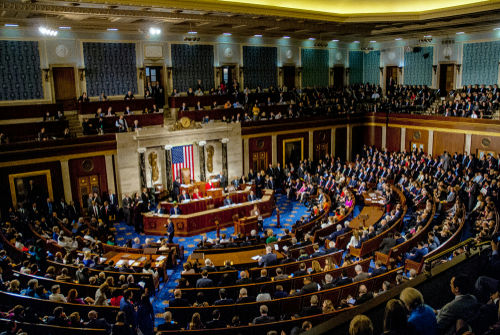The Quiet Skies program has been quietly tracking American citizens, including three Republican members of Congress, sparking outrage over government overreach.
Surveillance of Congress Members Raises Eyebrows
The Quiet Skies program, a controversial TSA initiative, recently came under scrutiny after it was revealed that three Republican members of Congress were unknowingly monitored. This revelation has ignited a debate about privacy and government overreach, particularly concerning potential abuses of surveillance powers for political purposes. Despite the program’s discontinuation, questions remain about its past operations and transparency.
The Senate’s Homeland Security and Governmental Affairs Committee, led by Senator Rand Paul, obtained documents detailing the program’s practices. These documents expose how individuals were flagged for enhanced surveillance based on vague criteria, raising concerns about the program’s arbitrary nature and its implications for civil liberties.
Whistleblowers Expose Flaws in Quiet Skies
Whistleblowers have played a crucial role in uncovering the extent of the Quiet Skies program. Their testimonies have highlighted how the program targeted individuals who posed no genuine threat, including those merely suspected of traveling to politically sensitive locations. The program’s methods, which involved detailed monitoring of passengers’ activities, have been criticized for being invasive and ineffective.
Documents have shown that individuals were placed on watchlists for minor infractions, such as removing masks during flights. This overreach, described as an “act of extreme recklessness,” underscores the program’s disproportionate response to perceived threats. Critics argue that such actions divert resources from addressing genuine security concerns, compromising the safety and privacy of American citizens.
Ending Quiet Skies: A Step Towards Accountability
The Trump administration, under DHS Chief Kristi Noem, terminated the Quiet Skies program, citing its failure to prevent terrorist attacks and its significant financial burden on taxpayers. The decision to dismantle the program aligns with conservative values of individual liberty and limited government intervention, addressing concerns about the misuse of surveillance powers.
While the program’s closure marks a victory for privacy advocates, it also highlights the need for continued vigilance against government overreach. The case of Quiet Skies serves as a reminder of the importance of transparency and accountability in federal programs, ensuring that civil liberties are upheld and respected.
Sources:
Not Only Tulsi: Three Members Of Congress Also Spied On In Quiet Skies Program

